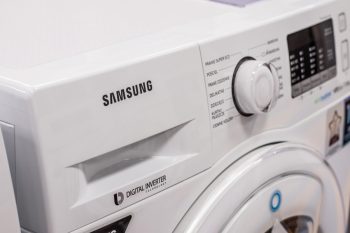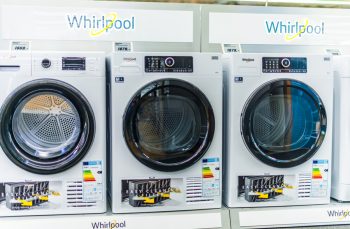
A dishwasher is a modern convenience that most of us would find difficult to live without. This handy appliance saves us time, reduces cleaning effort, and even saves water. But what happens when this kitchen workhorse starts to stink? It can be alarming to open your dishwasher after a cycle and be hit with an unpleasant odor. Let’s dive deep into the reasons behind a smelly dishwasher and how to fix it.
A dishwasher may stink due to the buildup of food particles and debris, a dirty or clogged filter, food residue on the interior walls, mold and mildew growth, a clogged drain or food trap, or hard water. To remedy this, clean the drain filter, wipe the door gasket, check for food residue, clean the dishwasher arms, and run cycles with vinegar and baking soda to eliminate odors and remove buildup. Regular maintenance can help prevent these issues.
Common Causes of a Stinky Dishwasher
Several factors can contribute to a dishwasher emitting a foul odor. Here are some of the most common culprits:
1. Buildup of Food Particles and Debris
Food particles and debris can get trapped in the dishwasher’s filter and spray arms. Over time, these particles can start to decay, leading to unpleasant odors.
2. Dirty or Clogged Filter
The filter of your dishwasher is designed to trap food particles to prevent them from re-depositing on your dishes during a cycle. If the filter is not cleaned regularly, these trapped particles can start to smell.
3. Food Residue on the Interior Walls
Food residue can stick to the interior walls of the dishwasher and start to decay if not cleaned off regularly. This can lead to a foul smell emanating from the dishwasher.
4. Mold and Mildew Growth
Mold and mildew can grow in damp and warm environments, which makes a dishwasher an ideal breeding ground. If your dishwasher is not properly ventilated or if it’s left idle for extended periods, mold and mildew can grow, causing a musty odor.
5. Clogged Drain or Food Trap
Old, rotting food can get trapped in the drain or food trap of the dishwasher. If not cleaned out regularly, this can lead to a foul smell.
6. Hard Water
Hard water can leave behind a harsh metallic smell. The minerals in hard water can also form a white residue on your dishes and glasses and accumulate inside your dishwasher over time, potentially leading to corrosion and unpleasant odors.
How to Clean and Deodorize a Smelly Dishwasher
Now that we have identified the possible causes, here are some effective ways to clean and deodorize your dishwasher:
1. Clean the Drain Filter
Remove the bottom rack and twist out the filter. Wash it with soap and hot water in your sink. A bottle brush may be helpful for reaching interior sections.
2. Wipe the Door Gasket
Food particles can accumulate on the door gasket, causing odor. Clean the gasket with detergent and warm water.
3. Check for Food Residue
Inspect the dishwasher for any food or grime that may have fallen to the bottom and remove it.
4. Clean the Dishwasher Arms
Ensure that the spray arms are free of food particles and debris.
5. Use Vinegar
Place a bowl filled with white vinegar on the bottom rack and run a cycle without detergent. The acid in vinegar helps eliminate odors and remove grease and detergent buildup.
6. Use Baking Soda
After the vinegar cycle, sprinkle 1 cup of baking soda on the bottom of the dishwasher. Run a short, hot water cycle. Baking soda helps to neutralize odors and remove any remaining residue.
Regular maintenance and cleaning of your dishwasher can prevent unpleasant smells. By taking a few simple steps, you can keep your dishwasher smelling fresh and performing optimally. Remember, a well-maintained dishwasher is not just about eliminating odors; it’s also about ensuring the longevity of your appliance and the cleanliness of your dishes.
Frequently Asked Questions
How often should I clean my dishwasher filter?
You should clean your dishwasher filter once a month to ensure optimal performance and prevent unpleasant odors.
Can I use bleach to clean my dishwasher?
Yes, you can use bleach to clean your dishwasher, but only if it’s a stainless steel interior. However, avoid using bleach if you have a plastic interior dishwasher as bleach can damage it.
Can I use any type of vinegar to clean my dishwasher?
It is recommended to use white vinegar for cleaning your dishwasher. It is effective at removing grease, soap scum, and odor-causing bacteria.
How often should I run a vinegar and baking soda cycle for cleaning?
Running a vinegar and baking soda cycle once a month can help maintain a clean and odor-free dishwasher.
Why does hard water cause a metallic smell in the dishwasher?
Hard water contains high levels of minerals like calcium and magnesium. When these minerals react with the detergent, it can leave behind a harsh metallic smell. Additionally, these minerals can build up in your dishwasher over time and cause a foul odor.
What happens if I don’t clean my dishwasher regularly?
If you don’t clean your dishwasher regularly, it can lead to unpleasant odors, poor cleaning results, and a shorter lifespan for your appliance. It can also lead to the growth of mold and mildew, which can be harmful to your health.











